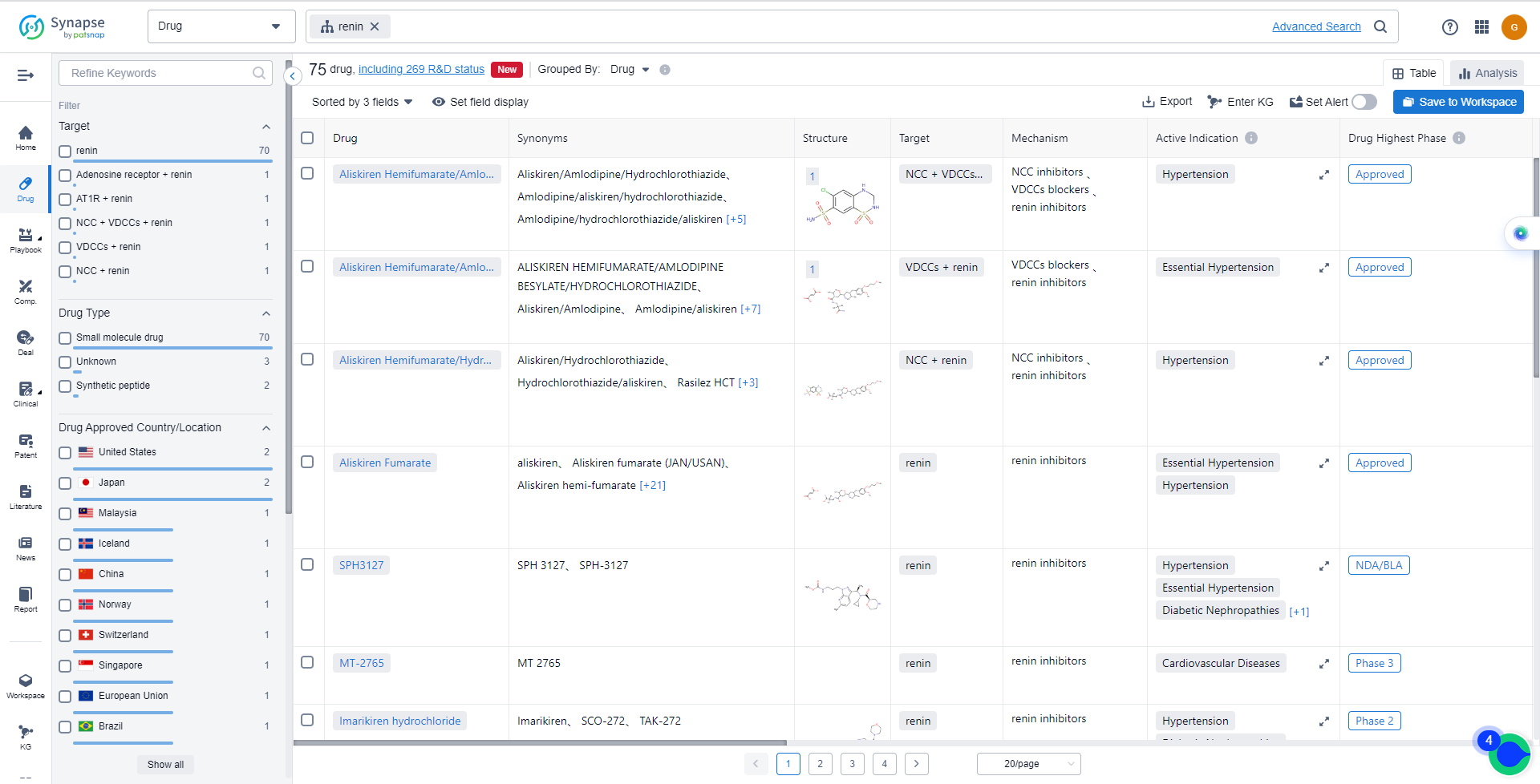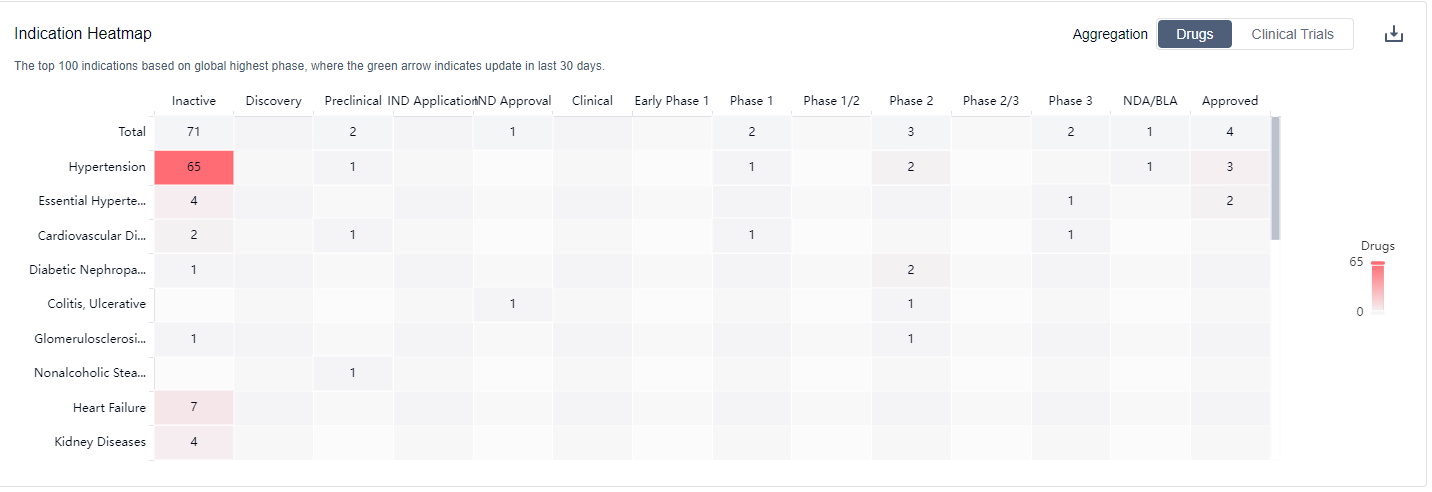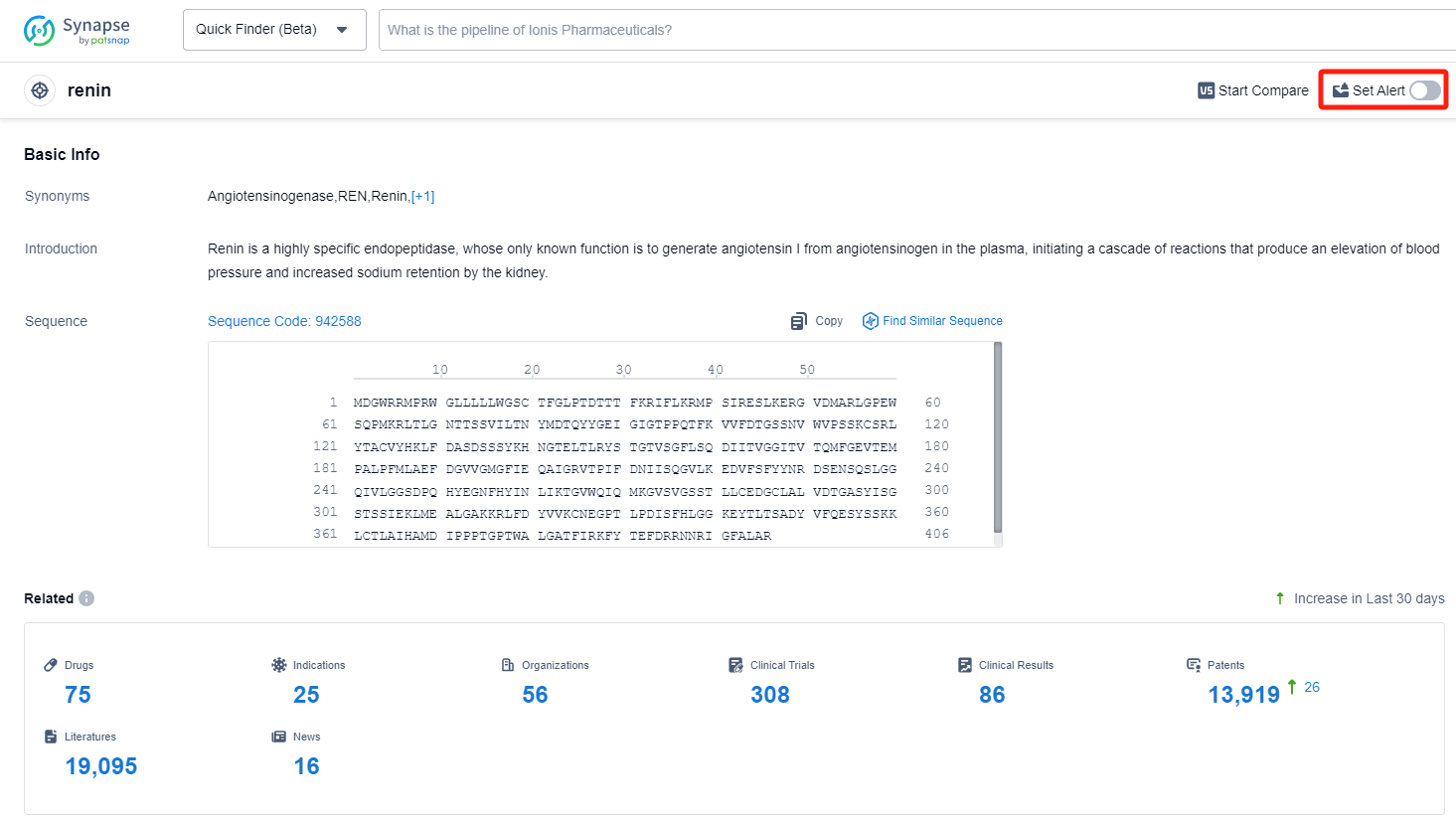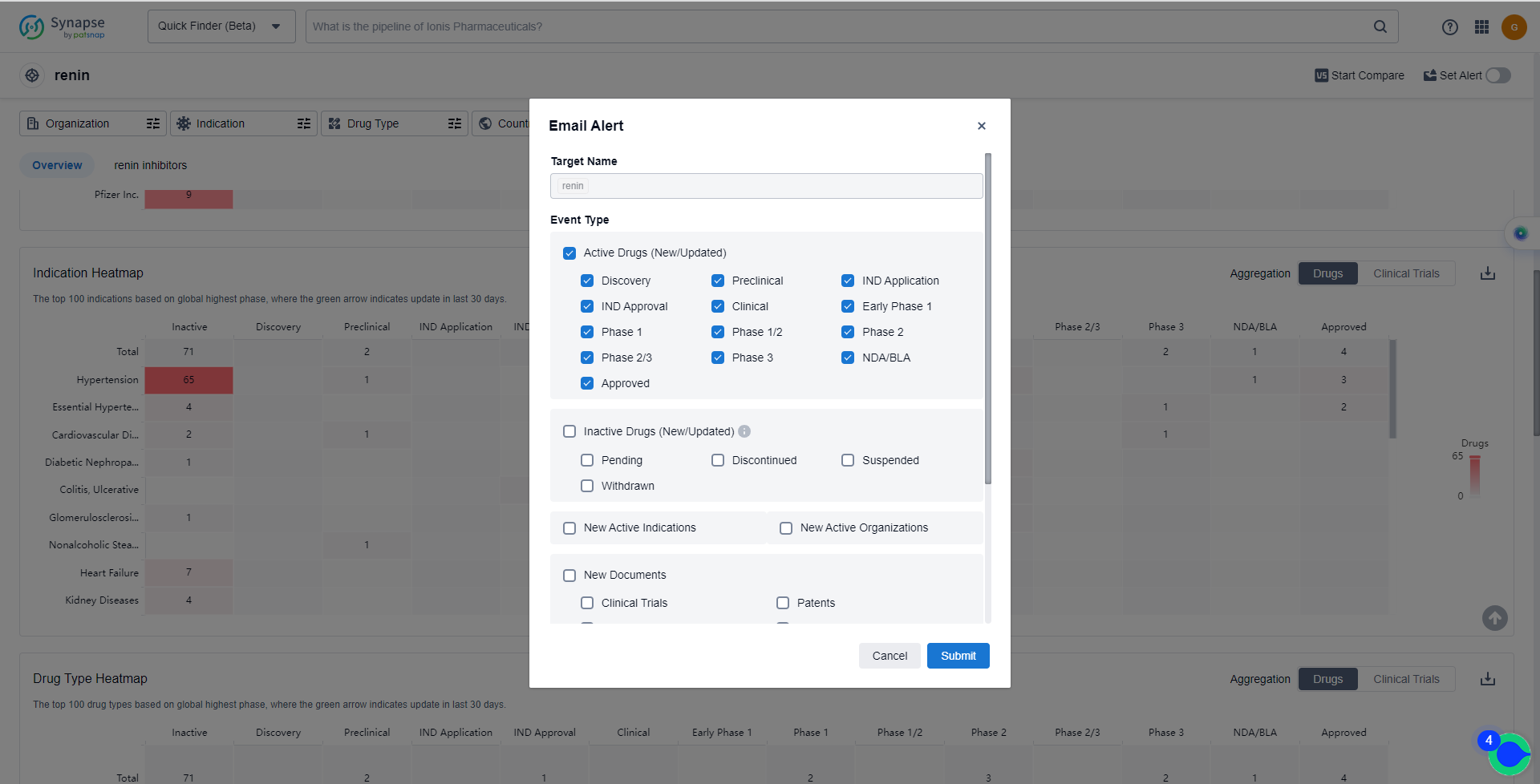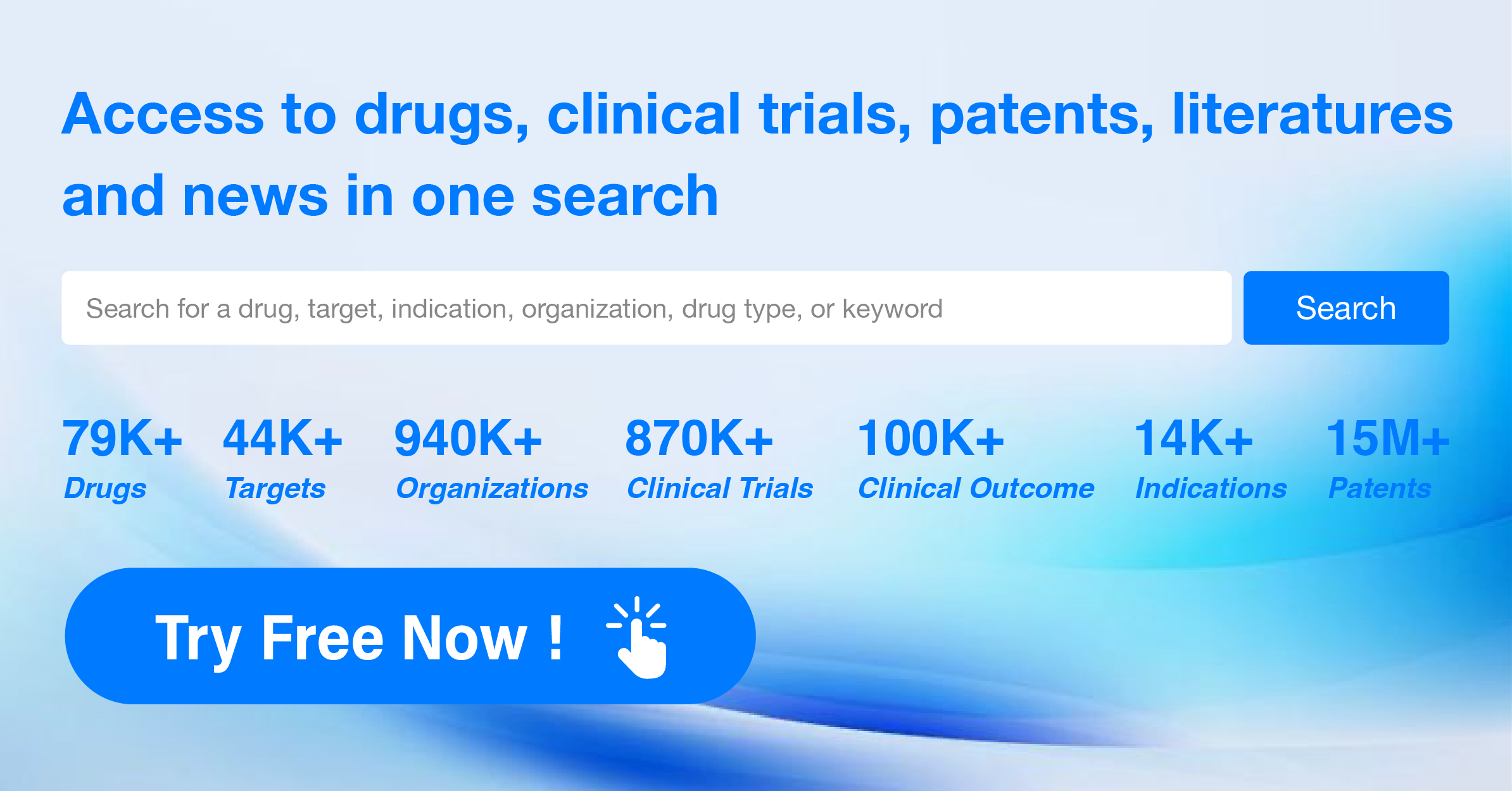Understanding Renin Inhibitors and Methods to Keep Abreast of Their Recent Developments
Renin is an enzyme produced and released by the kidneys that plays a crucial role in regulating blood pressure and fluid balance in the human body. It is part of the renin-angiotensin-aldosterone system (RAAS), which helps maintain homeostasis. Renin acts on a protein called angiotensinogen, converting it into angiotensin I. This inactive form is further converted into angiotensin II by other enzymes. Angiotensin II is a potent vasoconstrictor, causing blood vessels to narrow and increasing blood pressure. It also stimulates the release of aldosterone, a hormone that promotes sodium and water retention, further influencing blood pressure and fluid balance.
The development of potent inhibitors with acceptable oral bioavailability has been a challenging process since the 1970s. The first and second generations of renin inhibitors faced problems such as poor bioavailability and lack of potency. Finally, the third generation of non-peptidic renin inhibitors was discovered, which had acceptable oral bioavailability and were potent enough for clinical use. The first drug in this class was aliskiren, which received marketing approval in 2007.
The analysis of the target renin reveals that Novartis AG is the company with the highest stage of development, with three drugs approved. Hypertension is the most common approved indication for drugs targeting renin. Small molecule drugs and synthetic peptides are the drug types progressing most rapidly. The United States has the highest number of approved drugs, followed by Japan and the European Union. China has shown progress in the development of drugs targeting renin. The competitive landscape for target renin is dynamic, with multiple companies and countries actively involved in research and development. The future development of target renin is expected to continue with a focus on hypertension and other cardiovascular diseases, with potential advancements in drug types and international collaborations.
How do they work?
Renin inhibitors are a type of medication that target the enzyme renin in the body. Renin is a key component of the renin-angiotensin-aldosterone system (RAAS), which plays a crucial role in regulating blood pressure and fluid balance.
From a biomedical perspective, renin inhibitors are used in the treatment of hypertension (high blood pressure). By inhibiting the action of renin, these medications help to reduce the production of angiotensin II, a hormone that causes blood vessels to constrict and promotes the release of aldosterone, which leads to increased fluid retention. By blocking the effects of renin, renin inhibitors help to dilate blood vessels and decrease fluid volume, ultimately lowering blood pressure.
Some examples of renin inhibitors include aliskiren, the first FDA-approved renin inhibitor, and other newer agents like remikiren and zankiren. These medications are typically prescribed in combination with other antihypertensive drugs to achieve optimal blood pressure control.
It is important to note that renin inhibitors should be used under the supervision of a healthcare professional, as they may have potential side effects and can interact with other medications. Regular monitoring of blood pressure and kidney function is typically recommended during treatment with renin inhibitors.
List of renin Inhibitors
The currently marketed renin inhibitors include:
- Aliskiren Hemifumarate/Amlodipine Besilate/Hydrochlorothiazide
- Aliskiren Hemifumarate/Amlodipine Besylate
- Aliskiren Hemifumarate/Hydrochlorothiazide
- Aliskiren Fumarate
- SPH3127
- MT-2765
- Imarikiren hydrochloride
- SP-20104(1 A Pharma GmbH)
- BL-003
- PRO-20
For more information, please click on the image below.
What are renin inhibitors used for?
The most common approved indication of renin inhibitors are Hypertension. For more information, please click on the image below to log in and search.
How to obtain the latest development progress of renin inhibitors?
In the Synapse database, you can keep abreast of the latest research and development advances of renin inhibitors anywhere and anytime, daily or weekly, through the "Set Alert" function. Click on the image below to embark on a brand new journey of drug discovery!
